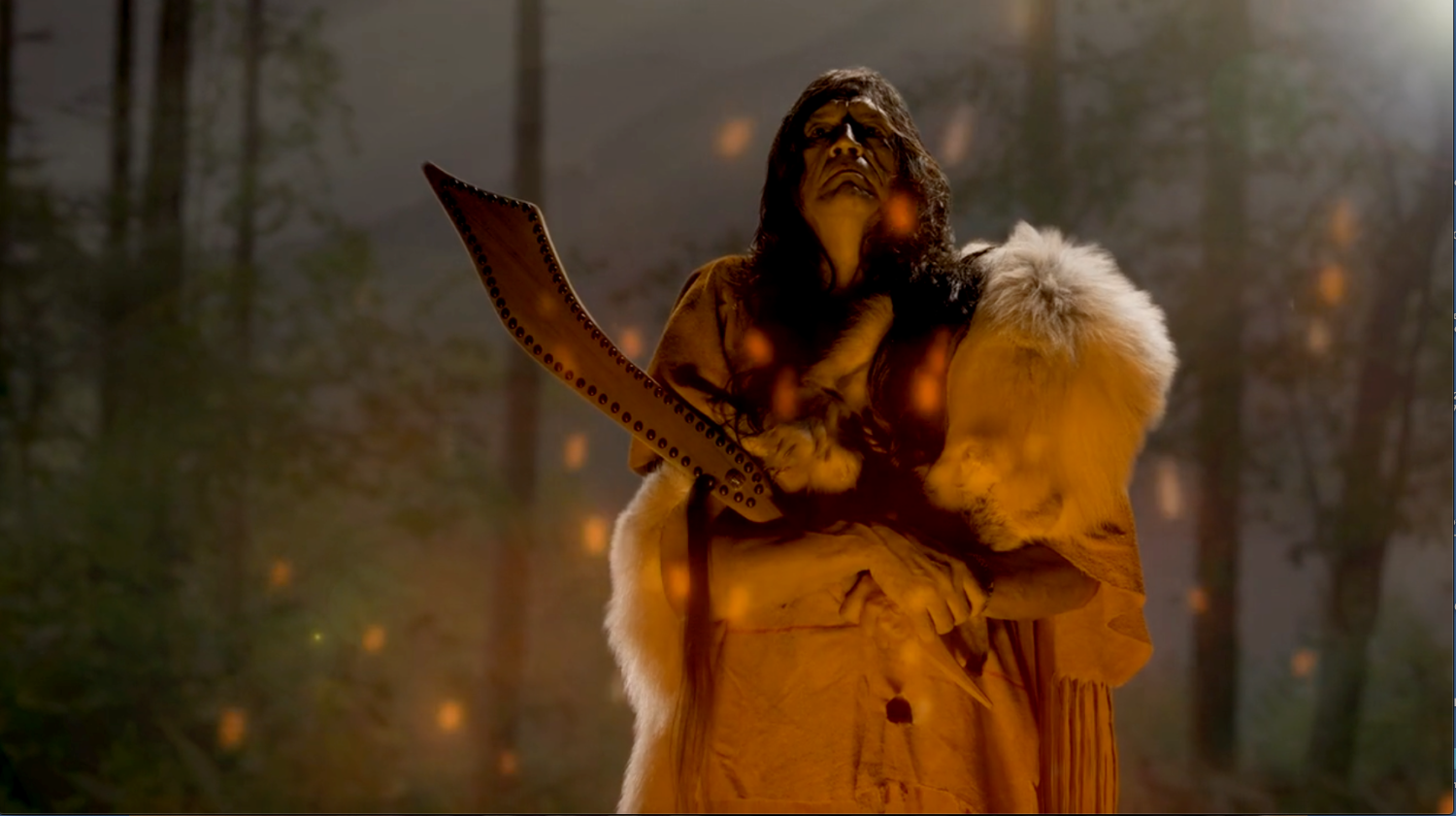Tzouhalem
(Canada, 92 min.)
Dir. Leslie D. Bland, Harold Joe
The Canadian history books have few heroic Indigenous figures, but that doesn’t mean such people didn’t exist. These records, written in English and French, narratives from the perspective of people who conquered the land by force. The story of Canadian history is one of erasure.
Along comes a film like Tzouhalem to offer a corrective among many. This docudrama tells the epic story of Cowichan Chief Tzouhalem, who amassed a near-mythic status for his might in battle and his ways with women. Directors Leslie D. Bland and Harold Joe offers a mix of interviews and dramatic interpretations to share warrior’s action-packed story.
Strength in Oral Storytelling
Tzouhalem features both scholars and Indigenous elders among its talking heads. The interviewees build the dramatic narrative of Tzouhalem’s rise in mid-1800s as he conquered one fight after another. Their testimonies offer some engaging details and unfurl the story with dramatic flair. The vivid imagery that collectively shape, moreover, helps the filmmakers trace Tzouhalem’s journey. Tzouhalem takes viewers to the sites of Maple Bay and Fort Victoria where the warrior saw notable victories. Their efforts assert an Indigenous presence and history on the land that largely bears only colonial markers.
Additionally, the talking heads approach situates Tzouhalem into a larger Indigenous legacy. By using interviews, rather than a voice-of-god narrator or conventional archive (inevitably impossible here), the film draws upon the practice of oral storytelling. The elders in particular evoke how Tzouhalem’s story passes from one generation to another. Moreover, the dramatic beats and mythic proportions to the tale underscore the power a speaker has to shape or alter history, and the responsibility that storytelling brings. There are inconsistencies in the tale—a quick montage humorously notes how interviewees peg Tzouhalem for having between eight and fifteen wives—but the specificities matter less than the morale. Speakers note how the warrior’s story exemplifies order and governance among Indigenous tribes. He paid the price for violating the Cowichan codes and for disrespecting the women of the land.
Drama Diminishes the Doc
There is a great story in Tzouhalem, which, unfortunately, is partly lost in the telling. Many of the talking heads aspects of the documentary propel the story. The film offsets the absence of archival materials to complement visually the interviews with dramatic interpretations. These vignettes, however, undercut the power of the oral storytelling. Joe plays Tzouhalem with admirable gusto, but the overall delivery of the sketches is unpolished and dramatically inert. Few of the performers in the sequences have much in the way of dramatic screen presence. Moreover, the costuming, blocking, and world building look more like ramshackle cosplay than cinema. The budgetary constraints overwhelm the action. It looks like people in costumes standing before a green screen, and it is. Perhaps Tzouhalem might have been better served with animation, which might have been more forgiving dramatically, thematically, and practically.
The film nevertheless displays its good intentions and puts an important historical tale on the record, and does so largely through Indigenous voices. Furthermore, it culminates with a larger message about Indigenous sovereignty that audiences can learn from the story. Cinematically, however, Tzouhalem’s story is just beginning.
Tzouhalem opens March 11 at Vancity Theatre.













